Mayor’s Blog 153 27th June, St James Park Care Home, Bradpole This was a beautiful sunny…
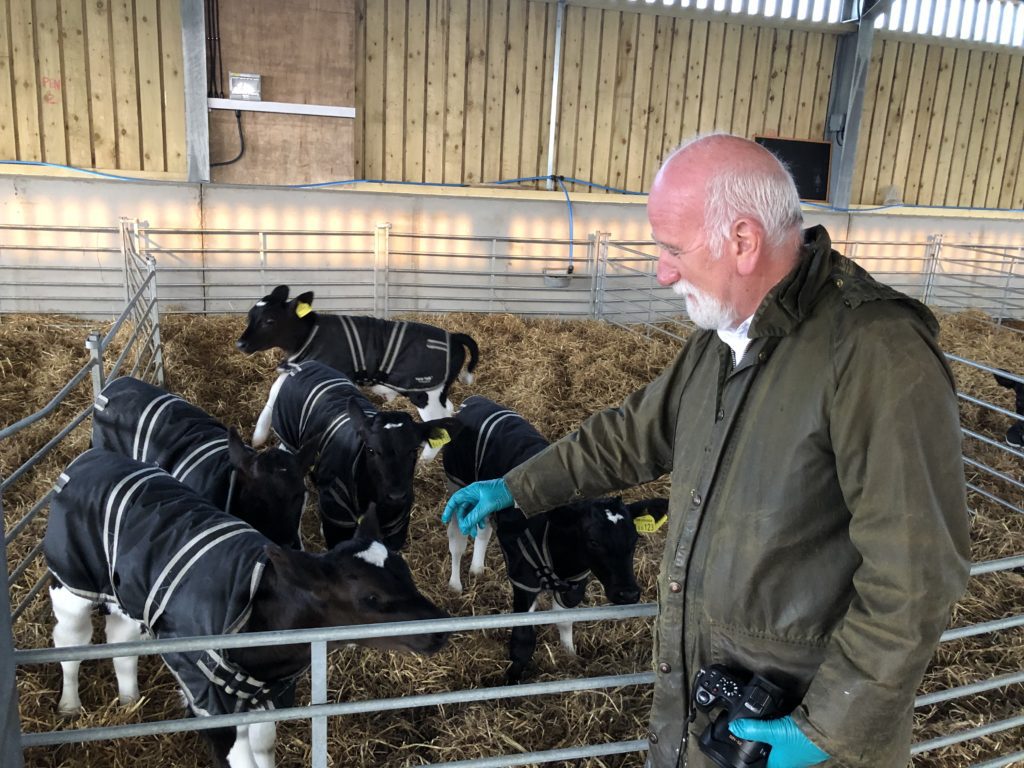
Mayor’s Blog – Sustainable Farming
Sustainable Farming
I was fortunate to grow up on a farm in the beautiful Vale of Belvoir, Nottinghamshire in the 1950s and 60s. In so many ways it was an idyllic childhood, free to roam the fields, observe wildlife, build dens, ride horses and drive tractors. It was also a very tough life, the family living on an agricultural labourers wage in a tied cottage that for much of my early childhood only had electricity in the small kitchen, no central heating, single glazed leaky windows that the curtains froze to in winter, and a diet that seemed to consist of vegetable stews bulked out with a variety of pulses – meat was a rare treat even for us beef farmers. How things have changed.
Apart from the fact that my youngest daughter, her husband and my grand daughters live in Dorchester it was the rural landscape that attracted us to this area on retirement. We are privileged to live in such a beautiful part of the country. A geology that has been sculpted by the elements over millennia into beautiful rolling hills over which man has created the landscape we see today. Beautiful it certainly is; natural it is not. From the trees on top of Colmer’s Hill to the remarkable Maiden Castle and all points N, S E and W it is an entirely man made landscape that nature finds a way to coexist in with us.
A few weeks ago as a result of this blog I was invited to visit an organic dairy farm not far from Bridport. Given that for me the sight of cattle grazing in the lush pasture this area is famous for brings joy to my heart, so I jumped at the chance. I arrived at Hollis Mead Dairy Farm at 6.00am just as dawn was breaking and morning milking was starting and was greeted by Rex Fisher who immediately encouraged me to get stuck in. Once in the milking parlour I was introduced to farm owner and the driving force behind the Hollis Mead enterprise, Oliver Hemsley and his team, and of course the herd of mainly Holstein and a few Ayrshire dairy cows.
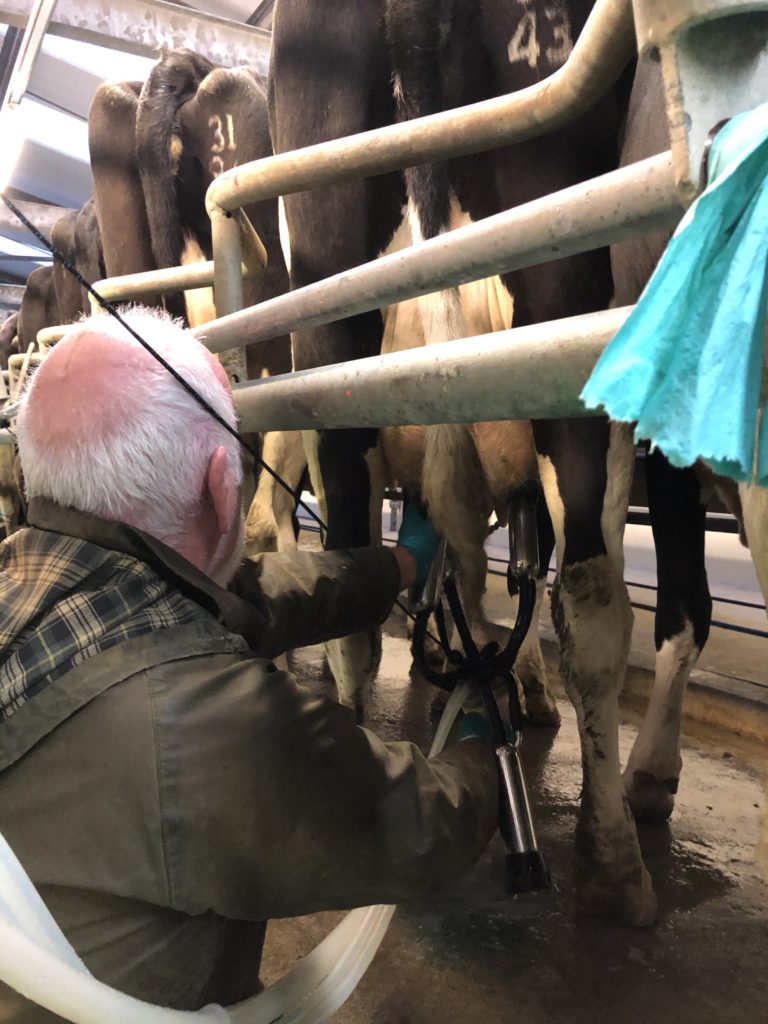
When Rex said get stuck in he really meant it and I was immediately tasked with cleaning the cows teats and applying the milking clusters. I was loving every minute, to be back in contact with these beautiful creatures. It took me straight back to my childhood – I was in my element.
Hollis Mead is an organic farm which produces high quality organic milk. They allow nature to take its own course and do not use any pesticides, insecticides, herbicides or artificial fertilisers. The cows are milked only once daily allowing ‘the girls’ more time to graze and relax because they believe pampered cows produce the best milk. The herd is pasture fed only, allowing them to thrive and have stress-free, happy lives on what is undoubtedly a beautiful farm.
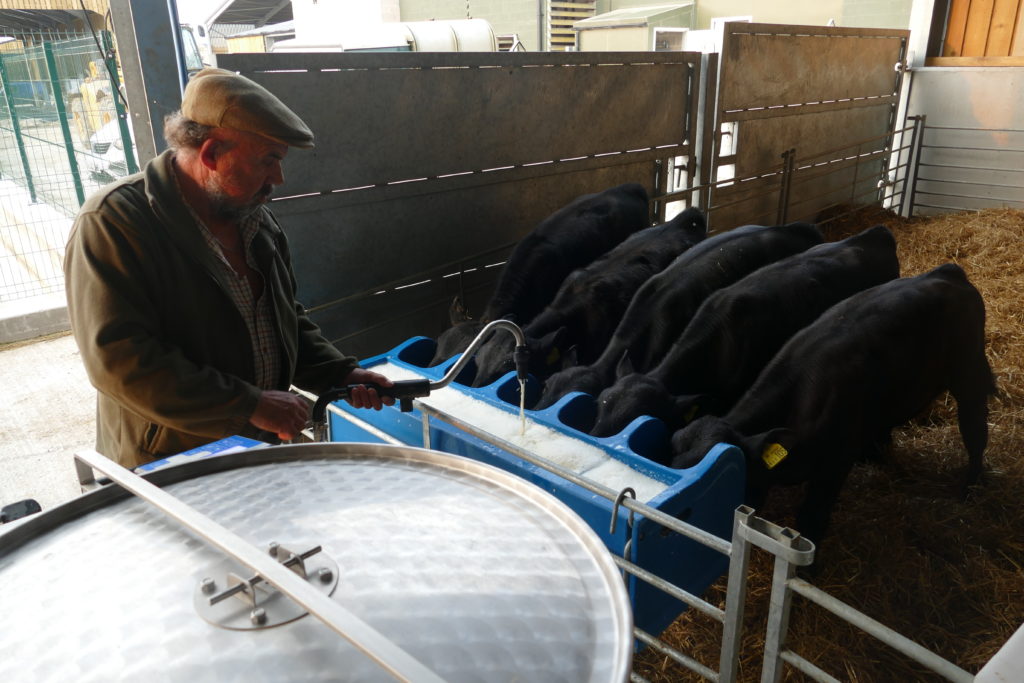
Hollis Mead calves are fed with their own organic milk and reared on the farm. In fact the milk you can see being fed to the calves in the image on the left was some of that I had helped produce that morning. This is unusual for a dairy farm. The three month old calves I met in the barn were living in small social groups and appeared to be very happy and relaxed, some were even wearing jackets – the most pampered calves I have ever seen.
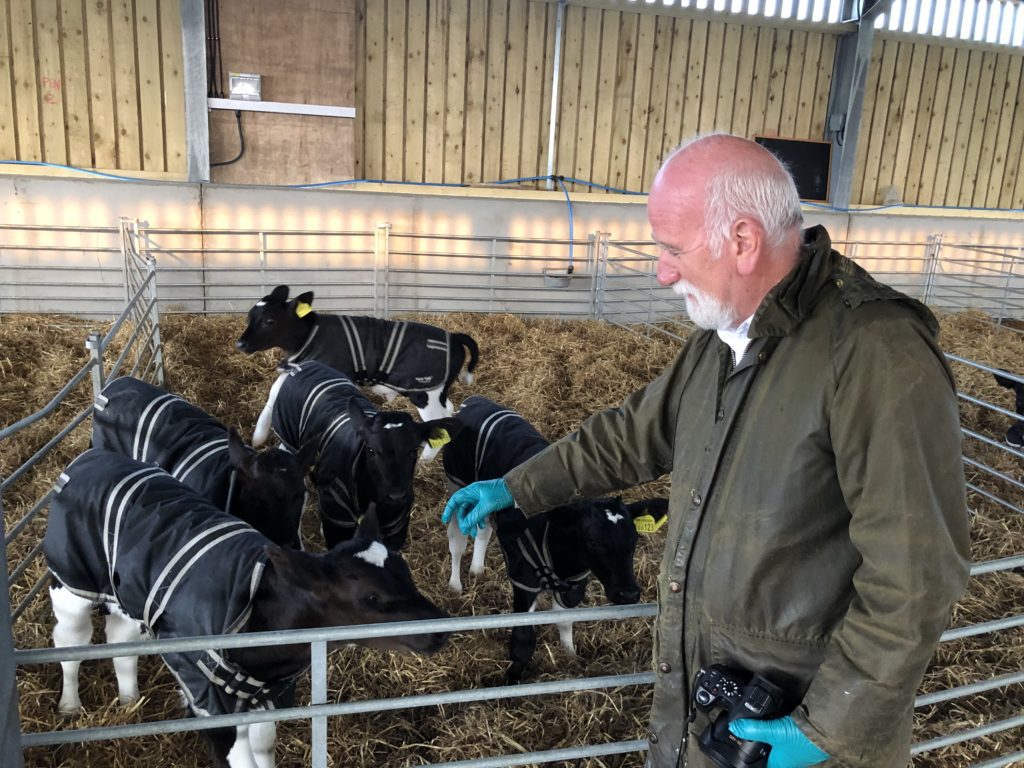
The ethos of the farm is to produce the organic milk, whilst enhancing the environment for wildlife. To that end over the past 20 years they have worked hard to rid the land of the legacy of intensive farming practices. The lush wild flower rich pasture the dairy herd graze on is now free from pesticides, herbicides and insecticides, and over 17km of hedges have been planted. As a result, the range and number of birds, insects and mammals including hares has increased significantly. Today owls are plentiful on the farm, which is always a good sign that there are field mice, voles and other small rodents flourishing. When milking was over Rex took me for a walk around some of the fields, the number of skylarks rising from the grass as we passed through was incredible.
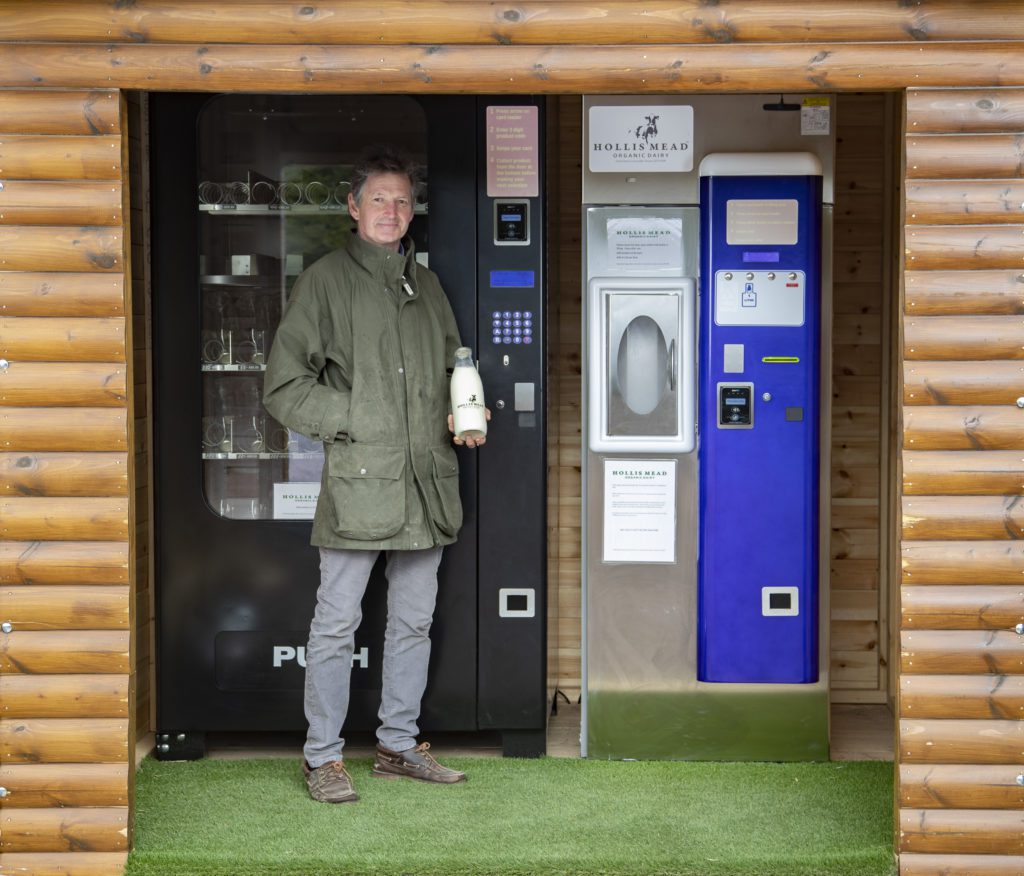
Hollis Farm Milk is currently only available from one of its dispensing machine sites. To date there are 11, the nearest to Bridport being at Symondsbury. They will soon be adding cream and cheese to the range of products they produce. Apart from tasting wonderful, milk that is organically produced as at Hollis Mead offers significant health benefits. But it is not only the health benefits that make organically produced milk so good, it is the undoubted environmental benefits that go alongside its production. When compared with the dairy free alternatives now on offer it is an absolute winner.
I have never understood why someone would choose to drink almond milk for example. The ever increasing monoculture swathes of land, including virgin rainforest, that is being used to satisfy this market plus the fuel used to transport the raw materials across the world to be packaged in non recyclable cartons just does not make environmental sense. If you are genuinely lactose intolerant I understand. If not …….
We live in an area where farming practices are changing, where nature is being encouraged. Today pioneering farmers such as the Arthur and Josephine Pearce followed by their children and now grandchildren at Tamarisk Farm, overlooking Chesil Beach at West Bexington, have been farming their land organically for 60 years. This is increasingly becoming the norm. If you take a walk through the farm fields at any time of the year, you will be traversing some of the richest pasture in the country. Tamarisk Farm, like Hollis Mead, is a place where wild flowers, hedges, insects, birds and mammals abound. But a key part to maintaining and encouraging this blossoming of wildlife is the herd of North Devon ‘Ruby Red’ beef cattle and the native breeds of sheep that graze the fields.
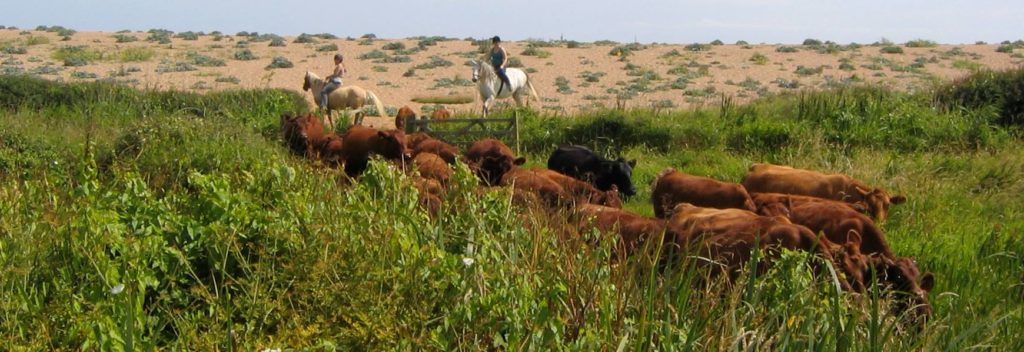
I first became aware of Tamarisk Farm shortly after moving to the area. I became a Miller at the Town Mill in Lyme Regis where they mill the organic wheat and rye grown on Tamarisk Farm. As the baker in the family I started using the Tamarisk grown, Town Mill milled wholemeal flour. It makes the most wonderful tasty bread and over recent months I have really missed having access to it. Then last Saturday when in Bridport, I came across the Tamarisk Farm market stall. My prayers had been answered, I purchased a big bag of flour and some lamb chops. The bread I made that afternoon was back to its tasty best and the lamb chops, accompanied by new potatoes and vegetables fresh from my allotment, were really succulent and tasty. The slight lack of size of the lamb chops was more than made up for in flavour and knowing its provenance. Quality always wins over quantity.
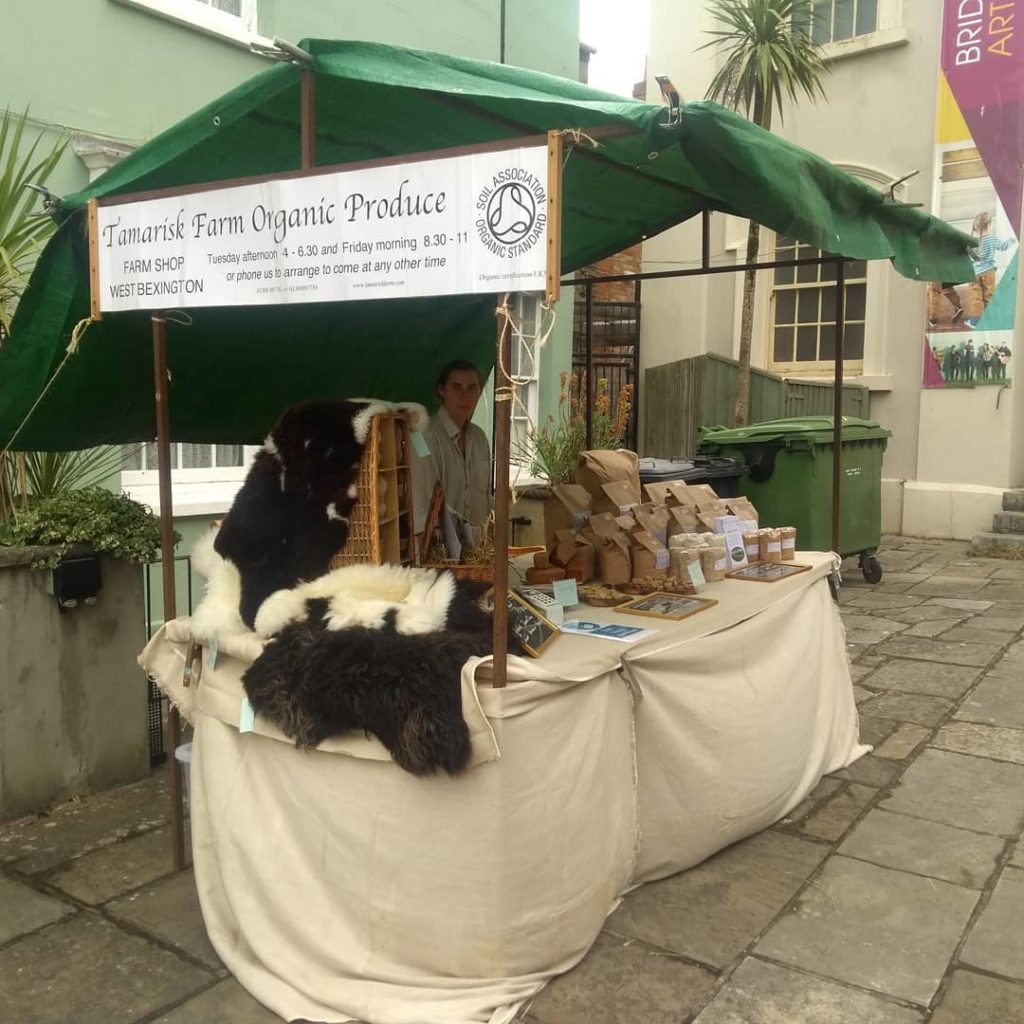
In Bridport, we are fortunate to have a range of shops, bakers, butchers, greengrocers, plus nearby farm shops, and the monthly Farmers’ Market where we can buy locally produced produce. Hollis Mead Dairy Farm and Tamarisk Farm are but two examples of local organic producers.
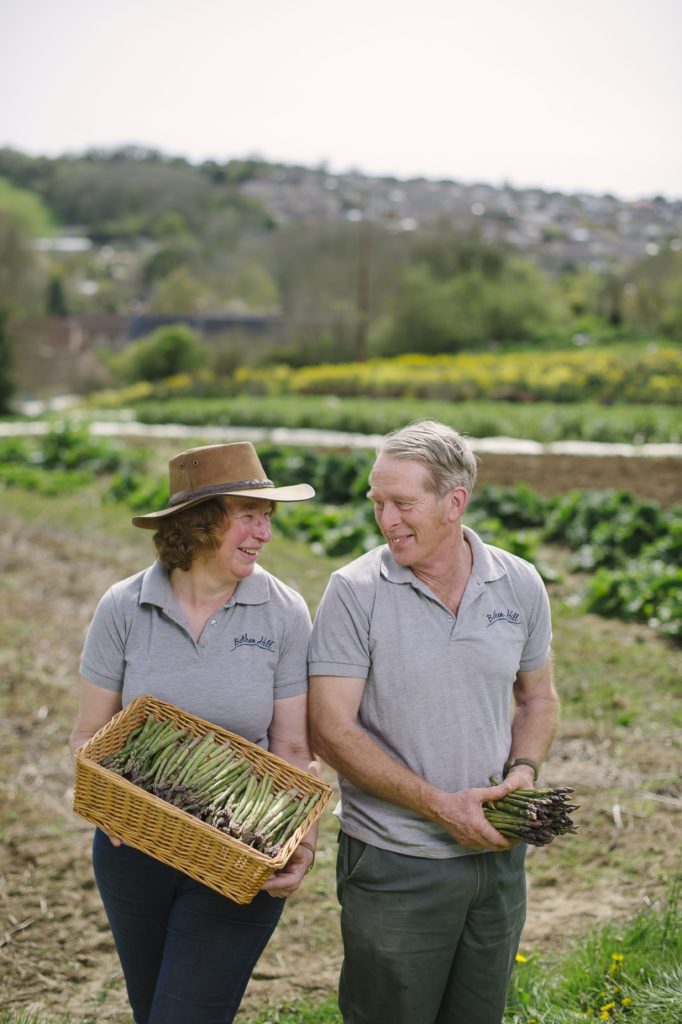
Right on our doorstep is Bothen Hill Farm which is West Dorset’s largest organic vegetable grower with over 150 different varieties grown on more than 15 acres. Every year I look forward to the day the Bothen Hill asparagus stall appears on the high street, the locally grown spears are so much better in terms of taste and better for the environment than the floppy ones flown in from around the world.
As consumers we need to make some serious decisions about the food we eat. Eating seasonally and locally is the key to a more environmentally friendly and sustainable landscape. As I said at the start of this Blog there is nothing natural about the AONB we live in. However, by supporting local organic producers through our purchasing choices we can all play a part in making the natural landscape a cleaner and more friendly place, where the natural world can thrive and coexist with us.
Sources of locally produced food include:
www.hollismeadorganicdairy.co.uk/
https://www.washingpool.co.uk/
http://www.modburyfarm.co.uk/
http://www.felicitysfarmshop.co.uk/

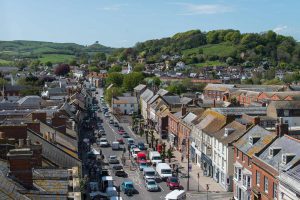
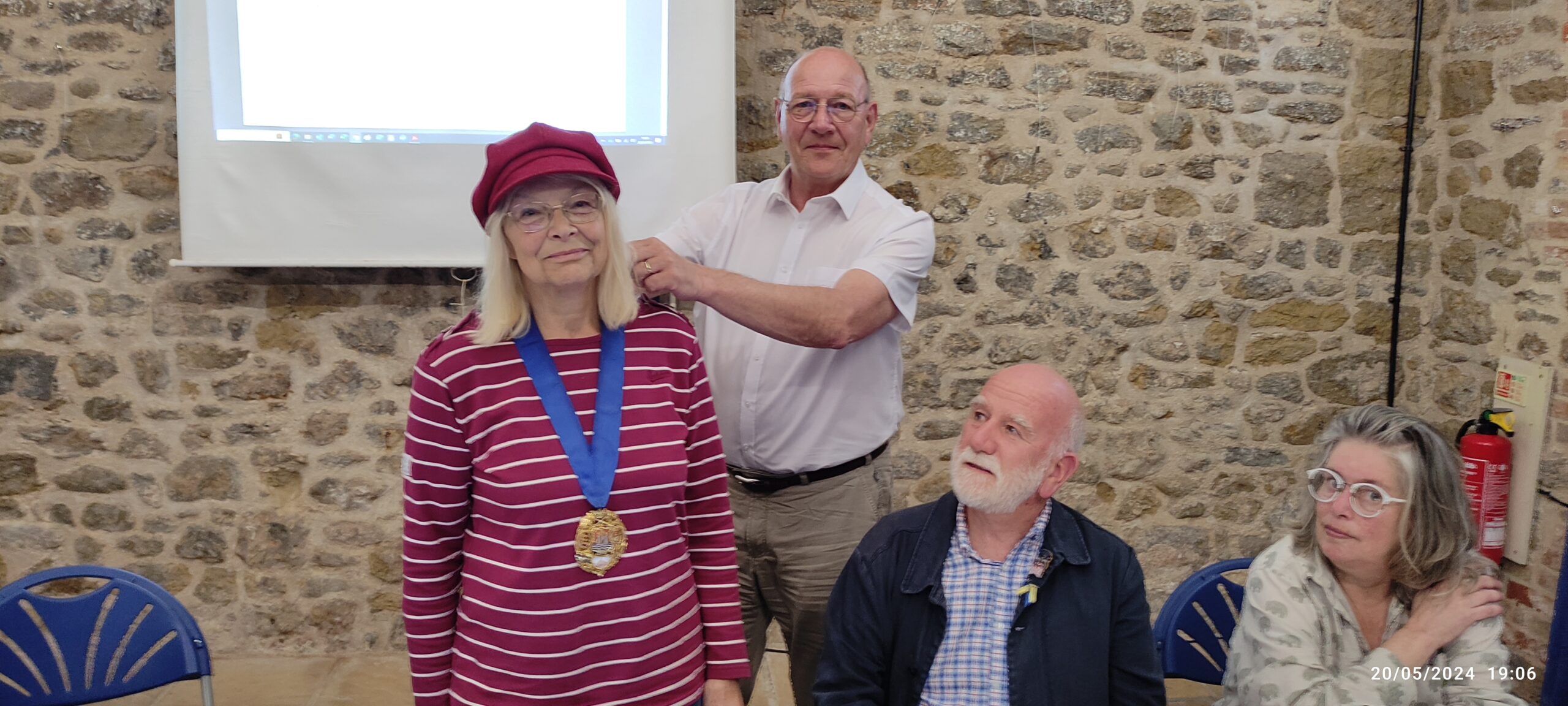
This Post Has 0 Comments